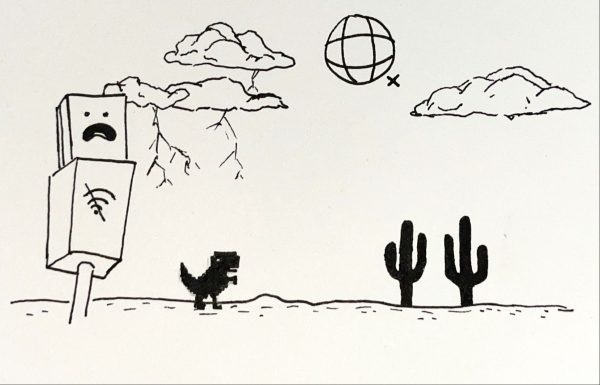Major changes needed to ‘go green’
April 15, 2008
About 160 square miles of Antarctica’s Wilkins Ice Shelf broke off between the end of February and the end of March.
This may seem like a single event that occurred far away, but it has precedence.
The most likely cause of the breakage is global warming – caused by the emission of carbon dioxide (CO2) into our atmosphere, among other things.
But global warming won’t stop the instant we stop emitting CO2 into the atmosphere.
According to a Washington Post article, “Researchers have predicted for a long time that warming will persist even after the world’s carbon emissions start to fall and that countries will have to dramatically curb the carbon output in order to avert severe climate change.”
This is because some of the CO2 we emit into the atmosphere could stay there for thousands of years. CO2 in the atmosphere in turn triggers deep sea warming. This is why even if we completely stop emitting carbon tomorrow, some warming will still continue.
But how we go about cutting back on these emissions is a complicated issue.
Currently, in our society, people need a car to get around – to get to work, to buy groceries.
Even if a person takes the train to work, unless they live across the street from the train station, they will either need to drive there or a take a cab. The only other options include biking or walking. These options may not be realistic, depending on the distance to the workplace.
Also, think about showing up to work already tired and sweaty at the beginning of the day.
If ridding our culture of all carbon emissions means we will have to stop driving cars, a major cultural change will be necessary – even if some other form of transportation replaces our current modes, or cars pass the days of using gasoline.
If we walked, biked or took the train to the grocery store, we could probably not buy as many groceries at once. Some of the garbage we throw away as a part of those groceries will cause pollution when it gets to the landfill. There may lay another culture change.
Over the past year, I’ve been thinking about what I am doing and the effects my own actions may have, and I have had trouble finding ways to change what I am doing. Even using a computer, a necessary action at this university, requires electricity.
There are many more factors at work in this issue than I can cover effectively in one single column. Reducing CO2 to the point some say is pertinent to combat global warming will not be done by a single person or group.
But if we try to “go green” now, we can possibly avert the next ice shelf collapse for a long while.
To reach a zero-emission future, it may take much more than that.












